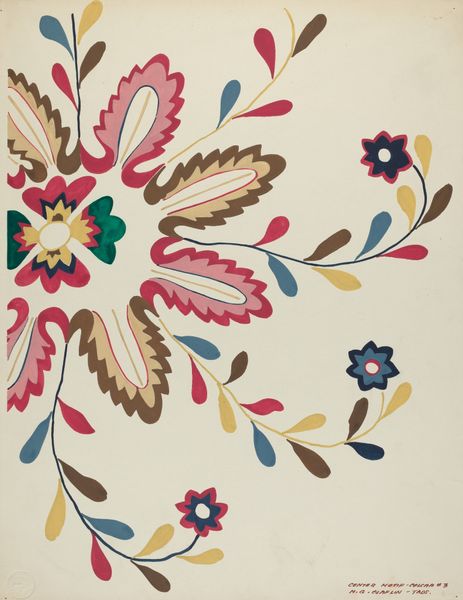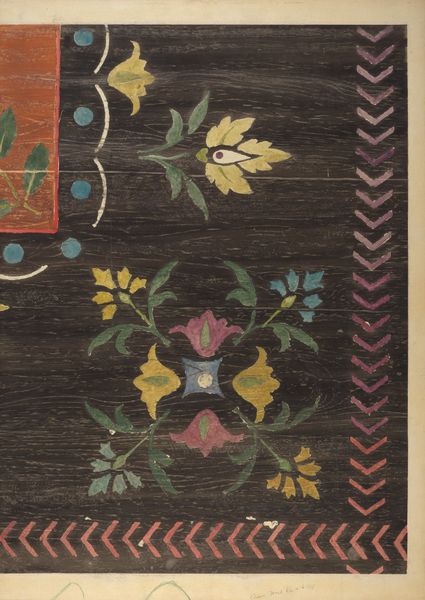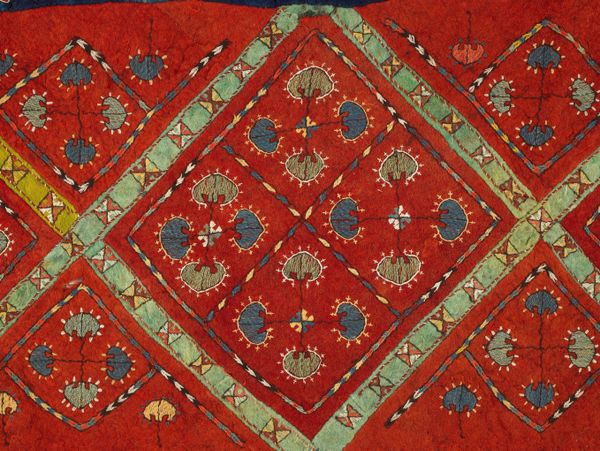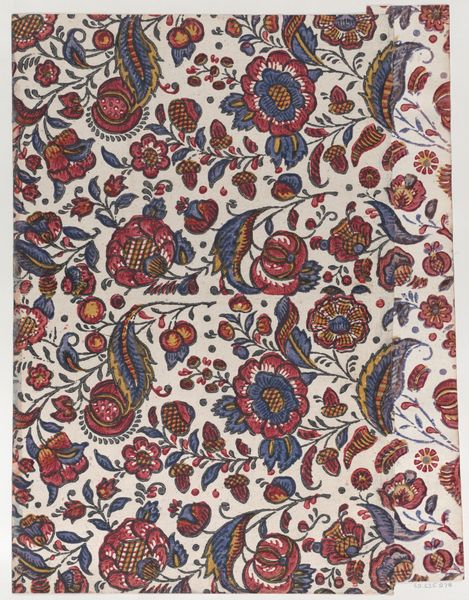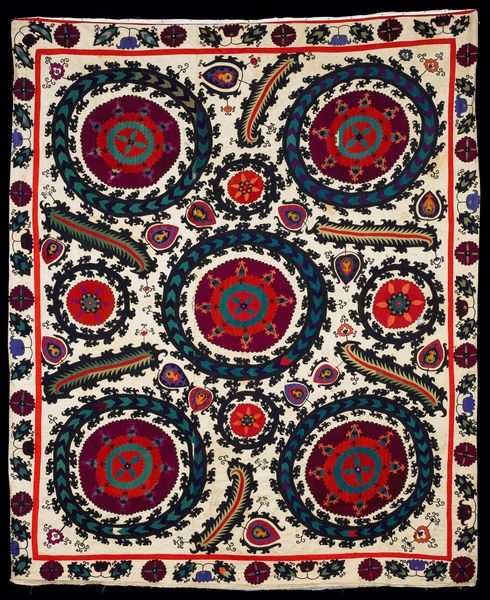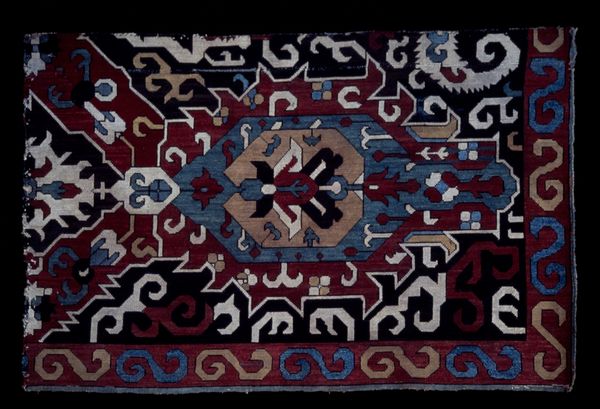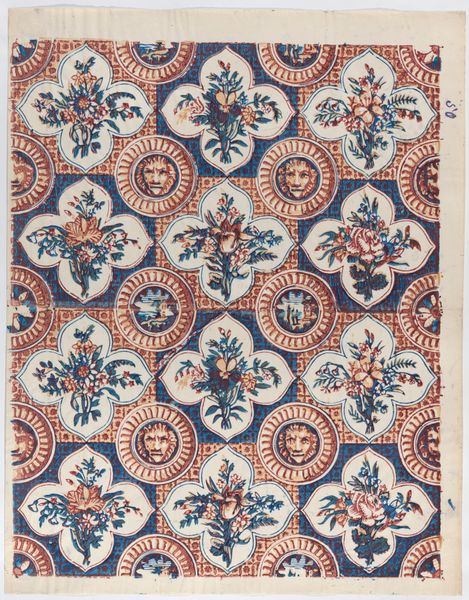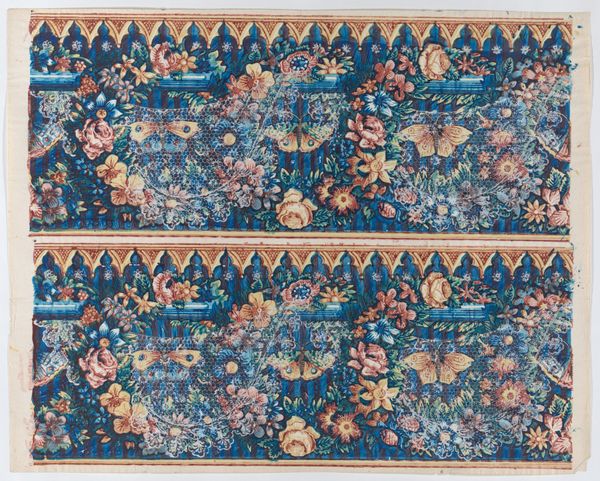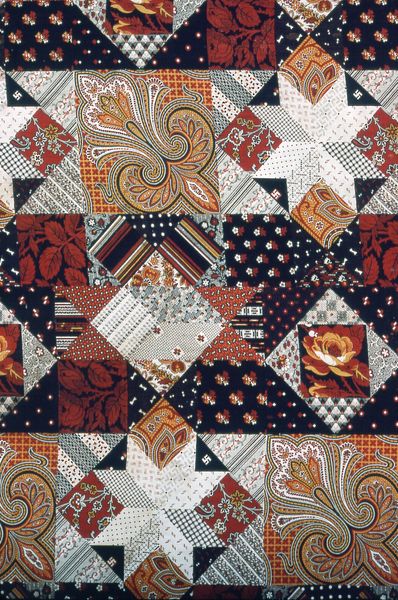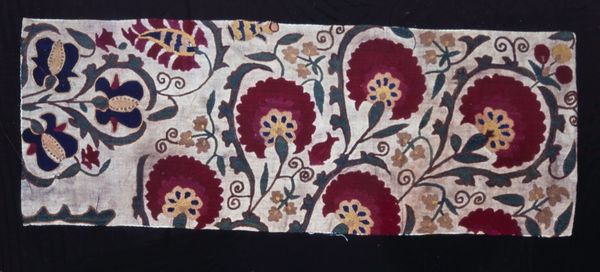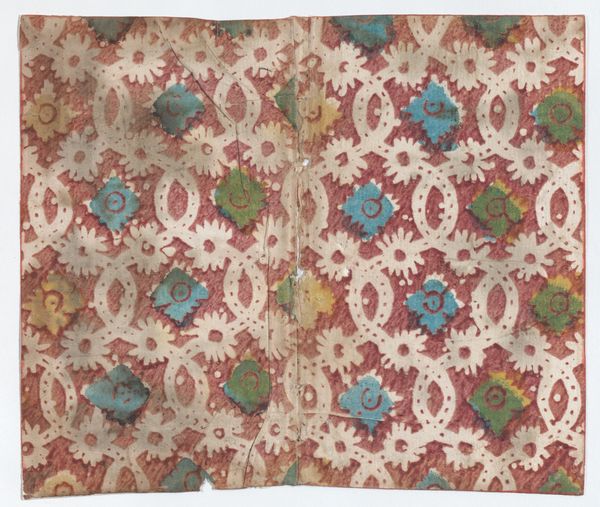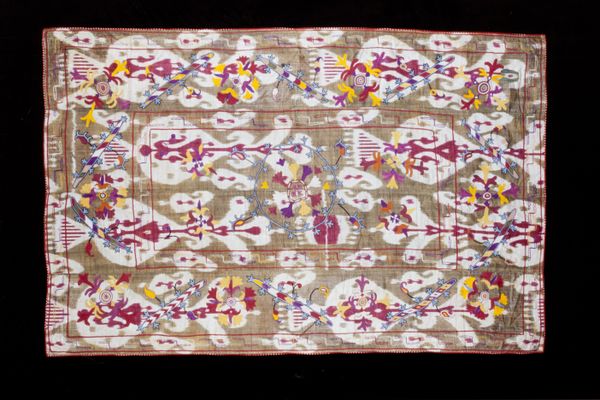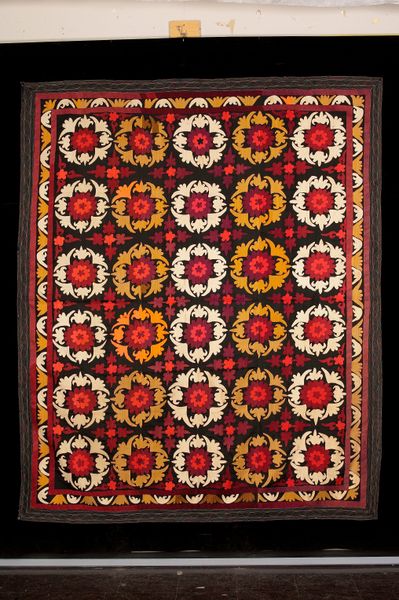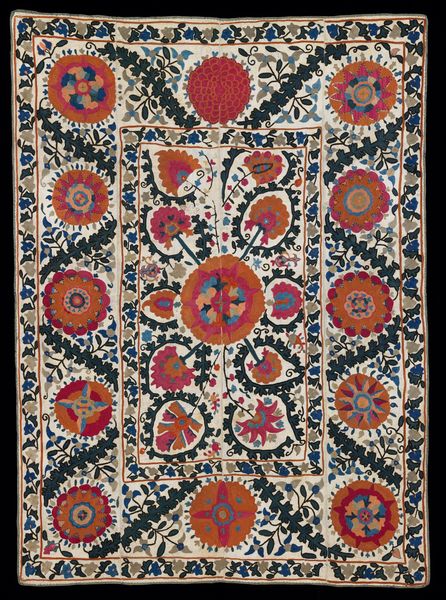
fibre-art, weaving, textile
#
pattern heavy
#
natural stone pattern
#
fibre-art
#
asian-art
#
weaving
#
textile
#
geometric pattern
#
abstract pattern
#
ethnic pattern
#
organic pattern
#
geometric
#
repetition of pattern
#
pattern repetition
#
islamic-art
#
layered pattern
#
combined pattern
Copyright: Public Domain
Editor: Here we have a "Suzani," a textile from around the 19th century. It's got such intricate fibre work, with gorgeous repeating floral and vine patterns. It strikes me as vibrant and full of life. What can you tell me about this piece? Curator: This textile offers a window into the social history of Central Asia. Suzanis, traditionally made by women, weren't just decorative; they were vital parts of dowries, signifying family unity and wishes for a prosperous marriage. Think of the labour and love stitched into each piece – that's a potent message of social and familial obligation. Editor: That’s fascinating! So it's about more than just the visual appeal of the piece? Curator: Precisely. The imagery, these repetitive floral patterns, could symbolize fertility, good health, or protection against evil. Museums and private collectors then preserve, display, and often commodify such culturally significant items, potentially stripping them of their original social function. The “ethnic pattern” tag gives an indication of how far removed its context now is. Do you think this changes how we perceive the artwork? Editor: Absolutely. Seeing it here, in a museum setting, I now realize I'm viewing it through a very Westernized lens, devoid of its original cultural weight. I guess its beauty still shines through. Curator: Indeed. But understanding the piece’s journey—from a craft deeply embedded in social custom to an object of artistic display—enriches our appreciation and makes us more aware of the power dynamics inherent in how art is presented and valued. Editor: I see what you mean, it prompts reflection about art's social journey across time and culture. Thank you.
Comments
minneapolisinstituteofart about 2 years ago
⋮
Part of a bride's dowry, these large silk embroideries were the most wide spread form of household decoration in Central Asia. They were often used as wall hangings and room dividers, however their first and most important use was as a cover for the bridal bed. This ceremonial use more than justified the labor and expense involved in their creation, as weddings were considered more than the joining of two individuals. Indeed, weddings represented the fusion of two families and the hoped for increase of the entire ethnic group.
Join the conversation
Join millions of artists and users on Artera today and experience the ultimate creative platform.
